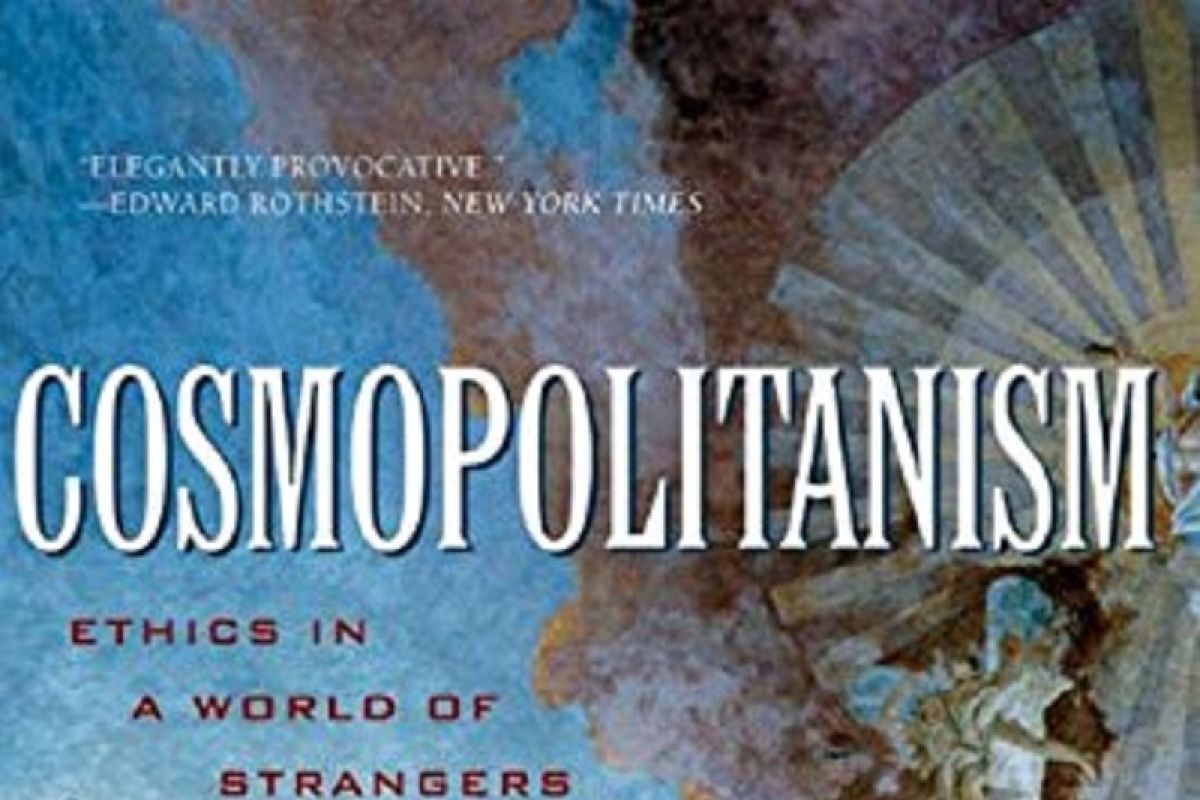The book has remained widely in circulation since its release more than a decade ago, and remains important reading for not only scholars and politicians, but also members of civil society who aspire to live peacefully and harmoniously in spite of differences.
Last year, we have witnessed some acts of terror over religious reasons and arising out of differing views on norms, ideals, and values. Take for instance the beheading of Samuel Paty, a French teacher, by 18-year-old Abdoullakh Anzorov, a refugee descendant of Chechen ethnicity, on October 16 last year.
The perpetrator, who was shot and killed by police, was furious at the tutor for showing students Charlie Hebdo's 2012 cartoons depicting Prophet Muhammad during a civics lesson. In the eyes of Anzorov and some other groups, the tutor had committed “blasphemy”, but others, including French President Emmanuel Macron, argued the teacher "was killed for teaching freedom of speech”.
Besides the killing of Samuel Paty, there have been reports of several atrocities committed over conflicting beliefs and perspectives, such as the attacks on immigrants by a far right group in some European countries, the arbitrary killing of black citizens in United States by police officers, and the persecution of a minority group by a military-backed majority group, as witnessed in the case of the Rohingyas of Myanmar.
In dealing with such issues, Appiah's Cosmopolitanism may not offer a concrete solution to policymakers and politicians. The author himself says: "This book is not a book about policy, nor is it a contribution to the debates about the true face of globalization. I'm a philosopher by trade, and philosophers rarely write really useful books".
Despite his modest words, Appiah has a lot to offer to scholars, politicians, policymakers, students, and other members of society. The book forces readers to rethink how differences should be treated, and why differences need to be seen as an inevitable fact and an undeniable reality of human civilization.
Strangers to none
Let’s look at the two basic tenets of Cosmopolitanism offered by Appiah in his book. First, "we have obligations to others, obligations that stretch beyond those to whom we are related by the ties of kith and kind, or even the more formal ties of a shared citizenship". According to Appiah, people are cosmo - polites, or "citizens of the cosmos".
The concept of Cosmopolitanism, including the citizens of cosmos, actually dates back to the fourth century B.C. Some Greek philosophers, or Cynics, are believed to have first coined the term.
In the book, Appiah explains that the word cosmos refers to the world, not in geographic terms, but in the sense of the universe. "Talk of cosmopolitanism originally signaled, then, a rejection of the conventional view that every civilized person belonged to a community among communities," he wrote in the book.
Cosmopolitanism's first assumption leads to the book's second tenet that "we take seriously the value not just of human life but of particular human lives, which means taking an interest in the practices and beliefs that lend them significance”.
Appiah seems aware that Cosmopolitanism's basic tenet is an easy target for ridicule. There will always be a question of how far people would take the idea of Cosmopolitanism into their lives. But for Appiah, "Cosmopolitanism isn't a hard work; (but) repudiating it is".
In his 196-page book, Appiah tries to explain how his two basic tenets are possible.
Cosmopolitanism lies in the assumption that people are born different and differences constitute humanity and civilization. Therefore, Cosmopolitanismacknowledges in the very beginning that differences among individuals, differences among societies, matter. As Appiah states, "one distinctively cosmopolitan commitment is to pluralism".
However, Appiah refuses to be called a supporter of relativism, arguing Cosmopolitanism acknowledges the importance of fallibilism, or "the sense that our knowledge is imperfect, provisional, subject to revision in the face of new evidence".
By acknowledging the fact that people have an incomplete and imperfect understanding, Cosmopolitanism highlights the importance of using conversations to gain a better understanding, to make sense of all differences and disagreements that drive us apart. For Appiah, making conversation is an attempt at "offering reasons". It is not a debate or a competition between conflicting arguments.
Such action, he said, would only deepen the rift and divide people into "us" and "them"; or "proposition" and "opposition".
Therefore, what he means by the word conversation should be understood both as the literal act of talking, and a metaphor "for engagement with the experience and the ideas of others”, Appiah notes. He further holds that any conversation "doesn't have to lead to consensus about anything, especially not values; it's enough that it helps people get used to one another".
At a practical level, Cosmopolitanism might only work in a democratic society where conversations are possible. But in an authoritarian regime, there would be a small hope Appiah's ideal views on humanity could be translated into action. (INE)
Related news: South Kalimantan: Floods force 112,709 people to flee home
Related news: Flooding in Jember displaces hundreds of residents
EDITED BY INE
Editor: Fardah Assegaf
Copyright © ANTARA 2021












